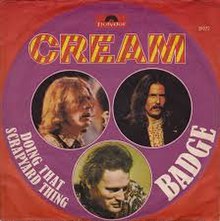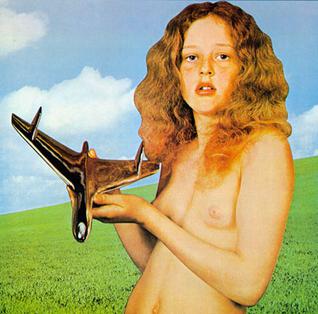
Blind Faith is the only studio album by the English supergroup Blind Faith, originally released in 1969 on Polydor Records in the United Kingdom and Europe and on Atco Records in the United States. It topped the album charts in the UK, Canada and US, and was listed at No. 40 on the US Soul Albums chart. It has been certified platinum by the RIAA.

Fresh Cream is the debut studio album by the British rock band Cream, consisting of bassist Jack Bruce, guitarist Eric Clapton and drummer Ginger Baker. The album was released in the UK on 9 December 1966, as the first LP on the Reaction Records label, owned by producer Robert Stigwood. It was released in both mono and stereo versions, at the same time as the release of the single "I Feel Free". The album peaked at No. 6 on the UK Albums Chart. The album was released in a slightly different form in January 1967 by Atco Records in the US, also in mono and stereo versions.

Layla and Other Assorted Love Songs is the only studio album by the English–American rock band Derek and the Dominos, released on 9 November 1970 as a double album by Polydor Records and Atco Records. It is best known for its title track, "Layla", which is often regarded as Eric Clapton's greatest musical achievement. The other band members were Bobby Whitlock, Jim Gordon, and Carl Radle (bass). Duane Allman played lead and slide guitar on 11 of the 14 songs.

"Layla" is a song written by Eric Clapton and Jim Gordon, originally recorded with their band Derek and the Dominos, as the thirteenth track from their only studio album, Layla and Other Assorted Love Songs (1970). Its contrasting movements were composed separately by Clapton and Gordon. The piano part has also been controversially credited to Rita Coolidge, Gordon's girlfriend at the time.
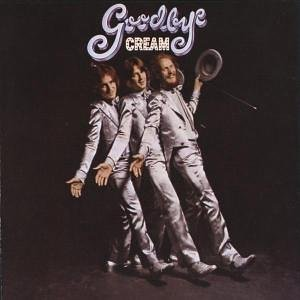
Goodbye is the fourth and final studio album by Cream, with three tracks recorded live, and three recorded in the studio. It was released in Europe by Polydor Records and by Atco Records in the United States, debuting in Billboard on 15 February 1969. It reached number one in the United Kingdom and number two in the United States. A single, "Badge", was subsequently released from the album a month later. The album was released after Cream disbanded in November 1968.
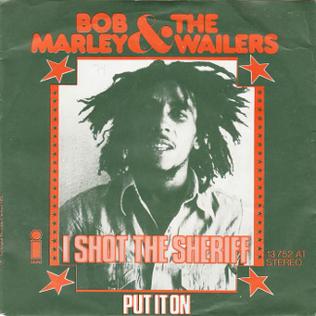
"I Shot the Sheriff" is a song written by Jamaican reggae musician Bob Marley and released in 1973 with his band the Wailers.

"Sunshine of Your Love" is a 1967 song by the British rock band Cream. With elements of hard rock and psychedelia, it is one of Cream's best known and most popular songs. Cream bassist and vocalist Jack Bruce based it on a distinctive bass riff he developed after attending a Jimi Hendrix concert. Guitarist Eric Clapton and lyricist Pete Brown later contributed to the song and drummer Ginger Baker plays a distinctive tom-tom drum rhythm.

"White Room" is a song by British rock band Cream, composed by bassist Jack Bruce with lyrics by poet Pete Brown. They recorded it for the studio half of the 1968 double album Wheels of Fire. In September, a shorter US single edit was released for AM radio stations, although album-oriented FM radio stations played the full album version. The subsequent UK single release in January 1969 used the full-length album version of the track.

The History of Eric Clapton is a compilation double LP, released in 1972 by Polydor Records in the United Kingdom, and Atco Records in the United States. It features Eric Clapton performing in various bands between 1964 and 1970, including The Yardbirds, Cream, Blind Faith and Derek and the Dominos.

Delaney & Bonnie was an American duo of singer-songwriters Delaney Bramlett and Bonnie Bramlett. In 1969 and 1970, they fronted a rock/soul ensemble, Delaney & Bonnie and Friends, whose members at different times included Duane Allman, Gregg Allman, Eric Clapton, George Harrison, Leon Russell, Bobby Whitlock, Dave Mason, Steve Howe, Rita Coolidge, and King Curtis.

"After Midnight" is a rock song by J. J. Cale, first released in 1966. Eric Clapton later covered it for his eponymous album, released in 1970. Clapton's rendition became a success, prompting Cale to re-record the song for his own 1971 album Naturally. In 1987, Clapton later re-recorded the song for a Michelob beer commercial and then released the re-recording as a single. "After Midnight" has been considered one of Clapton's signature songs throughout his career. Other artists covered the song in later years.
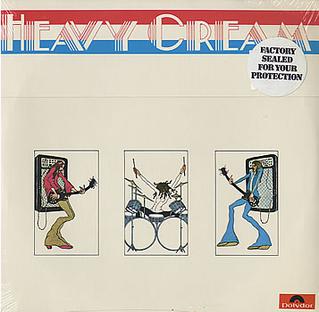
Heavy Cream is a compilation album of material recorded by the British rock band Cream from 1966 to 1969.
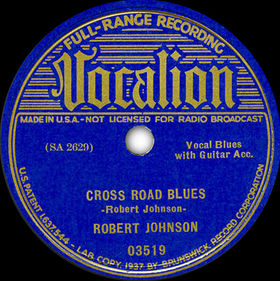
"Cross Road Blues" is a song written by the American blues artist Robert Johnson. He performed it solo with his vocal and acoustic slide guitar in the Delta blues style. The song has become part of the Robert Johnson mythology as referring to the place where he sold his soul to the Devil in exchange for musical genius. This is based largely on folklore of the American South that identifies a crossroads as the site where Faustian bargains can be made, as the lyrics do not contain any references to Satan.

The Cream of Clapton is an Eric Clapton compilation album released in 1995. Additionally, the European and U.S.-versions have a different track listings. The European version had already been released as The Best of Eric Clapton in 1991, though without the track "I Can't Stand It".

"Forever Man" is a song from Eric Clapton's 1985 album Behind the Sun, released as the first single of the album. It reached number one on the Billboard Top Rock Tracks chart, becoming his second single to do so. In total, the single release sold more than 500,000 copies worldwide.

Best of Cream is a compilation album of material recorded from 1966 to 1968 by the rock band Cream, and released shortly after their disbanding. The album was originally released by Cream's U.S. label Atco (Atlantic) Records, and was available on that label during the years 1969–1972. The album was briefly reissued in the U.S. in 1977 by RSO/Polydor Records, to whom U.S. distribution rights for Cream's recordings had reverted by that time. A re-release was pressed in 2014 by Polydor on 180g vinyl.

"I Ain't Gonna Stand for It" is the second single from Stevie Wonder's 1980 album, Hotter Than July. It reached number four on the Billboard R&B singles chart and number 11 on the Hot 100. It also hit number 10 on the UK Singles Chart. The song is famous for Wonder's imitation of a seasoned country-and-western crooner and his inspiring drumming. Charlie and Ronnie Wilson of The Gap Band provide backing vocals on the song. It was covered by Eric Clapton in 2001.

"Strange Brew" is a song by the British rock band Cream. First released as a single in June 1967 in the UK and US, it was later added to their second studio album Disraeli Gears. The song features Eric Clapton on lead vocals rather than the usual lead by Jack Bruce. The single peaked at number 17 on the UK Singles Chart in July of that same year. In the UK, it was the last Cream single to be released by Reaction Records.

"Anyone for Tennis (The Savage Seven Theme)" is a song by the British rock band Cream. It was used as the theme song for the 1968 film The Savage Seven.

"Promises" is a song written by Richard Feldman and Roger Linn and recorded by the British singer and guitarist Eric Clapton in September 1978. It appears on Clapton's studio album Backless.
